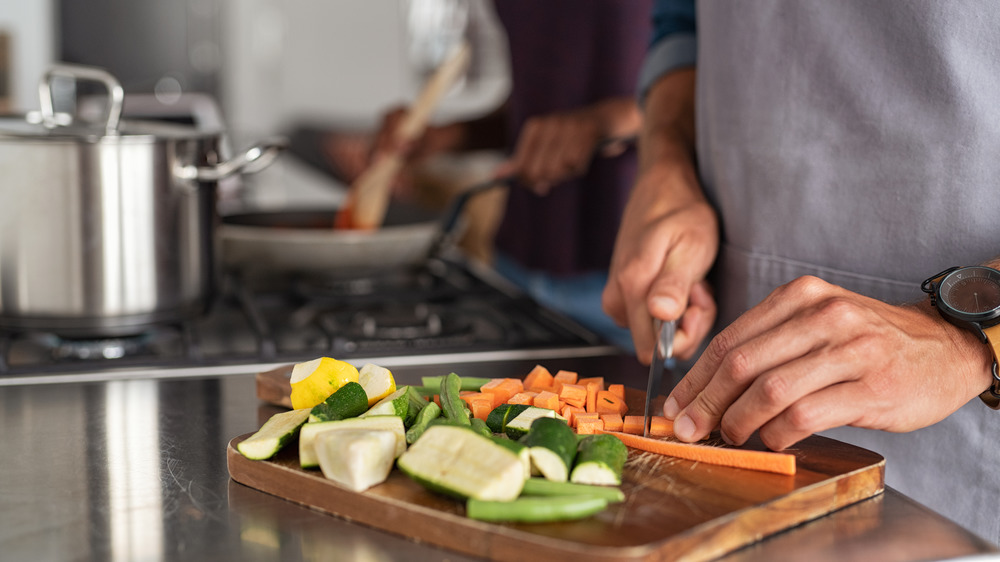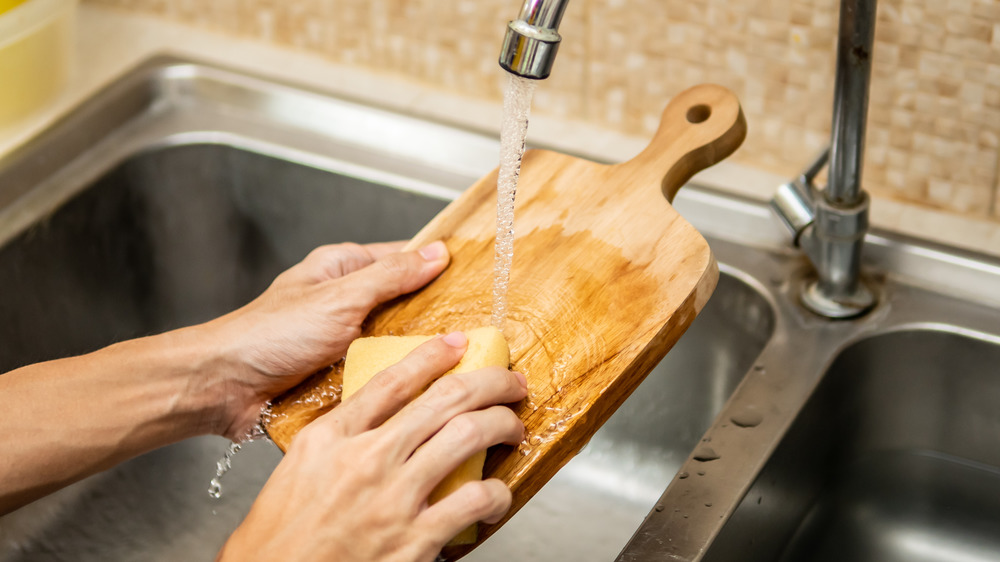The Big Mistake You're Making With Your Cutting Board
Food poisoning is one of the most common ailments in the United States. In fact, the Centers for Disease Control and Prevention (CDC) estimates that each year, 48 million Americans get sick from a foodborne illness, 128,000 are hospitalized, and 3,000 die. Food poisoning leads to uncomfortable symptoms like diarrhea, abdominal cramps, nausea, and vomiting. In certain cases, these symptoms can be so severe that they become life-threatening.
Many foodborne illnesses are caused by a variety of bacteria, viruses, or parasites that make their way into the food supply. In order to prevent food poisoning at home, there are simple steps you can take during food preparation and cooking. An important rule of thumb to remember, according to the U.S. Food & Drug Administration (FDA), is to use separate cutting boards for different foods. One cutting board should be used for fresh produce and other foods that do not need to be cooked before eaten and another for raw meat, poultry, and seafood. Cutting boards should be washed with hot, soapy water between uses and should be replaced when they are worn. Separate utensils should also be used for cooked and raw foods and need to be washed thoroughly after every use.
Other important tips for food safety
Washing your hands frequently is another important way to prevent food poisoning. Use plain soap and warm water and make sure to scrub your hands for 20 seconds. Don't forget the backs of your hands, between your fingers, and under your nails. Rinse them and then dry them with a clean towel. Remember to wash your hands often but especially before, during, and after preparing foods; after handling raw meat, poultry, and fish; before eating; after using the bathroom, after changing diapers; after touching animals, animal food, and animal waste; before and after caring for someone who is ill; after blowing your nose, sneezing, or coughing; and after touching garbage.
Additionally, wash your fruits and vegetables with running water, but do not wash raw meat, poultry or eggs. This can spread harmful germs around your kitchen. In addition to cutting boards, wash all surfaces in the kitchen with hot soapy water, including dishes, utensils and countertops. This is especially important after they've come in contact with raw meat, poultry, seafood, or eggs. Finally, keep raw meat, poultry, seafood, and eggs separate from other foods in your grocery cart and at home in your refrigerator. This will help prevent any juices that may leak out from contaminating other foods.


